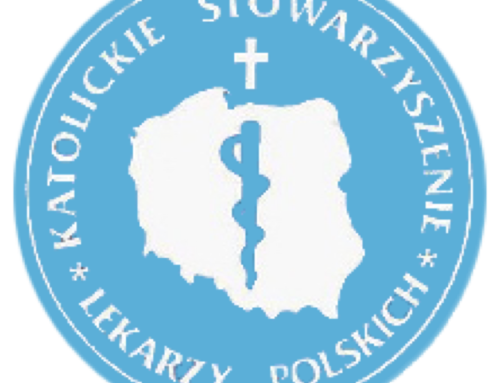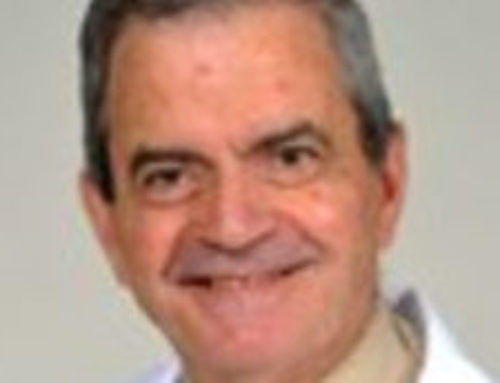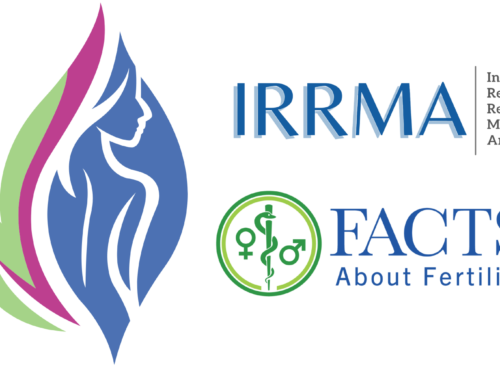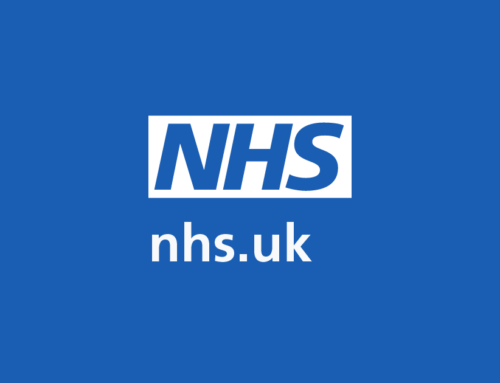27 October 1980
To the participants in two Congresses on medicine and surgery
On Monday, 27 October, the Holy Father received about three thousand participants in two Medical Congresses: the 81st Congress of the Italian Society of Internal Medicine, and the 82nd Congress of the Italian Society of General Surgery. John Paul II delivered the following address:
I welcome you with deep satisfaction, eminent representatives of the Italian Society of Internal Medicine and of the Italian Society of General Surgery, who, on the occasion of the celebration of your respective national Congresses, kindly wished to pay me a visit.
In fact, I consider your presence particularly significant not only because of the qualified medico-scientific activity in which each of you is engaged, but also because of the implicit and yet clear witness that it expresses in favour of moral and human values. What induced you, in fact, to request this Audience, but watchful and attentive awareness of the highest reasons of life and action, reasons which you know are part of the daily solicitude of Peter’s Successor?
To all of you, therefore, with the expression of my gratitude, the most respectful and cordial greeting, with a special grateful thought for the Presidents of your two Societies, Prof. Alessandro Beretta Angussola, and Prof. Giuseppe Zannini. I then wish to greet the collaborators, students and relatives who have accompanied you here, together with the zealous and well-deserving Bishop, Most Rev. Fiorenzo Angelini.
The new approach
You are gathered in Rome, Ladies and Gentlemen, to discuss some particularly topical aspects of the disciplines in your sphere of competence. In the last few years medical skill has made significant breakthroughs, which have considerably increased the possibilities of therapeutic intervention. That has brought about a slow modification of the very concept of medicine, extending its role from its original function of combating disease to that of the overall promotion of the human being’s health. The consequence of this new approach has been the progressive evolution of the relationship between doctor and patient towards more and more complex organized forms, aimed at safeguarding the citizen’s health from birth to old age.
The protection of childhood and of old age, school medicine, factory medicine, the prevention of occupational diseases and accidents at work, mental hygiene, protection of the handicapped and of drug addicts, of the mentally ill, prevention of pollution diseases, control of the territory, etc., are as many chapters of the present way of conceiving “service for man”, to which your skill is called.
There is no reason not to rejoice at this, since it can well be said that, from this standpoint, man’s right over this life has never been so fully recognized. It is one of the qualifying features of the extraordinary acceleration of history, which characterizes our age. Because of this extraordinary development, medicine is playing an outstanding role in shaping the face of society today.
Forms of violation
A serene and attentive examination of the present situation as a whole, must however, lead to the recognition that insidious forms of violation of the right to a decent life, to which every human being is entitled, have not at all disappeared. In some ways it could even be said that negative aspects have emerged, as I wrote in the Encyclical Redemptor Hominis. “If, therefore, our time … appears as a time of great progress, it is also seen as a time of threat in many forms for man… This is why all phases of present-day progress must be followed attentively. Each stage of that progress must, so to speak, be x-rayed from this point of view… indeed there is already a real perceptible danger that, while man’s dominion over the world of things is making enormous advances, he should lose the essential threads of his dominion, and in various ways let his humanity be subjected to the world, and become himself something subject to manipulation in many ways – even if the manipulation is often not directly perceptible” (n.16).
Science not highest value
The truth is that technological development, characteristic of our time, is suffering from a fundamental ambivalence, while on the one hand it enables man to take in hand his own destiny. It exposes him, on the other hand, to the temptation of going beyond the limits of reasonable dominion over nature, jeopardizing the very survival and integrity of the human person.
Just consider, to remain in the sphere of biology and medicine, the implicit danger to man’s right to life represented by the very discoveries in the field of artificial insemination, the control of births and fertility, hibernation and “retarded death”, genetic engineering, psychic drugs, organ transplants, etc. Certainly, scientific knowledge has its own laws by which it must abide. It must also recognize, however, especially in medicine, an impassable limit in respect for the person and in protection of his right to live in a way worthy of a human being. If a new method of investigation, for example, harms or threatens to harm this right, it is not to be considered lawful simply because it increases our knowledge. Science, in fact, is not the highest value, to which all others must be subordinated. Higher up in the scale of values, is precisely the individual’s personal right to physical and spiritual life, to his psychic and functional integrity. The person, in fact, is the measure and criterion of good or evil in all human manifestations. Scientific progress, therefore, cannot claim to be in a kind of neutral ground. The ethical norm, based on respect for the dignity of the person, must illuminate and discipline both the research phase and the phase of the application of the results reached in it.
Medicine versus man
For some time, alarmed voices have been raised in your field, denouncing the harmful consequences derived from a medicine concerned more with itself than with man, whom it should serve. I am thinking for example, of the pharmacological field. There is no doubt that the amazing success of modern therapy is based on the riches and effectiveness of the drugs at our disposal. It is a fact, however, that, among the chapters of pathology today, there has been added a new one, the iatrogenetic one. There are more and more frequent morbid manifestations due to the indiscriminate use of drugs: diseases of the skin, of the nervous system, of the digestive system, above all the diseases of the blood. It is not only a question of unsuitable use of drugs, or of abuse of them. It is often a question of real and proper intolerance of the organism.
The danger is not to be neglected, because even the most careful and conscientious pharmacological research does not completely exclude a potential risk: the tragic example of thalidomide is a proof of this. Even with the intention of being beneficial, the doctor, therefore, may involuntarily harm the individual’s right over his own life. Pharmacological research and therapeutic application must, therefore, be highly attentive to the ethical norms, responsible for safeguarding this right.
On experimentation
The discourse has led us to touch on a subject that is much debated today, that of experimentation. Here, too, recognition of the dignity of the person, and of the ethical norm derived from it, as a superior value by which scientific research must be inspired, has precise consequences at the deontological level. Pharmacological and clinical experimentation cannot be initiated without having taken all precautions to guarantee the harmlessness of the intervention The pre-clinical phase of the research must therefore provide the most abundant pharmaco-toxicological documentation.
It is obvious, moreover, that the patient must be informed of the experimentation, of its purpose and any risks it involves, so that he may give or refuse his consent in full awareness and freedom. The doctor, in fact, has only that power and those rights over the patient which the patient himself confers to him.
Consent, on the part of the patient is not, furthermore, without any limitation. To improve his own conditions of health remains, apart from particular cases, the essential purpose of collaboration on the part of the patient. Experimentation, in fact, is justified in primis with the interest of the individual, not with that of the collectivity. That does not exclude, however, that without detriment to his own substantial integrity, the patient can legitimately assume a proportionate part of risk, in order to contribute with his initiative to the progress of medicine and, in this way, to the good of the community. Medical science, in fact, has its place in the community as a force to set man free from infirmities that handicap him and from psychosomatic weaknesses that humiliate him. To give something of oneself, within the limits laid down by the moral norm, may constitute a highly meritorious witness of charity and an occasion of spiritual growth so significant as to be able to compensate for the risk of a slight physical disability.
Re-personalize medicine
The considerations set forth on the matter of pharmacological research and medical therapy can be extended to other fields of medicine. More often than is thought, in the very sphere of care for the sick person, his personal right to psychophysical integrity can be harmed, with the exercise of what is actually violence: in the diagnostic investigation by means of complex procedures which are not infrequently traumatizing, in surgical treatment which now goes so far as to carry out the boldest interventions of destruction and reconstruction, in the case of organ transplants, in applied medical research, in the hospital organization itself.
It is not possible to deal completely now with such subjects, whose examination would take us far, forcing us to question ourselves on the types of medicine towards which we wish to move: whether that of a medicine in keeping with man or, on the other hand, a medicine under the sign of pure technology and organizational efficiency. It is necessary to make an effort for a “re-personalization” of medicine which, leading once more to a more unified consideration of the patient, will stimulate the establishment of a more humanized relationship with him, such, that is, as not to tear the bond between the psycho-affective sphere and his suffering body. The patient-doctor relationship must be based once more on a dialogue made up of listening, respect, and interest; it must become once more a real meeting between two free people or, as has been said, between a “trust” and a “conscience”.
This will make it possible for the patient to feel understood for what he really is: an individual who has difficulties in the use of his body or in the exercise of his faculties; but who preserves intact the deep essence of his humanity, and expects to see his rights to truth and good respected, both on the human and on the religious plane.
Ladies and Gentlemen, in proposing these reflections to you, my thought spontaneously goes to Christ’s words: “I was sick and you visited me” (Mt 25,36). What a stimulus to the “desired personalization” of medicine can come from Christian charity, which makes us discover in the features of every sick person the adorable face of the great, mysterious Patient, who continues to suffer in those over whom your profession, wise and useful, bends!
My prayer goes to him at this moment, to invoke on you, on your dear ones, and on all your patients, the abundance of heavenly favours, as a token of which I willingly impart to you the conciliatory Apostolic Blessing
John Paul II







